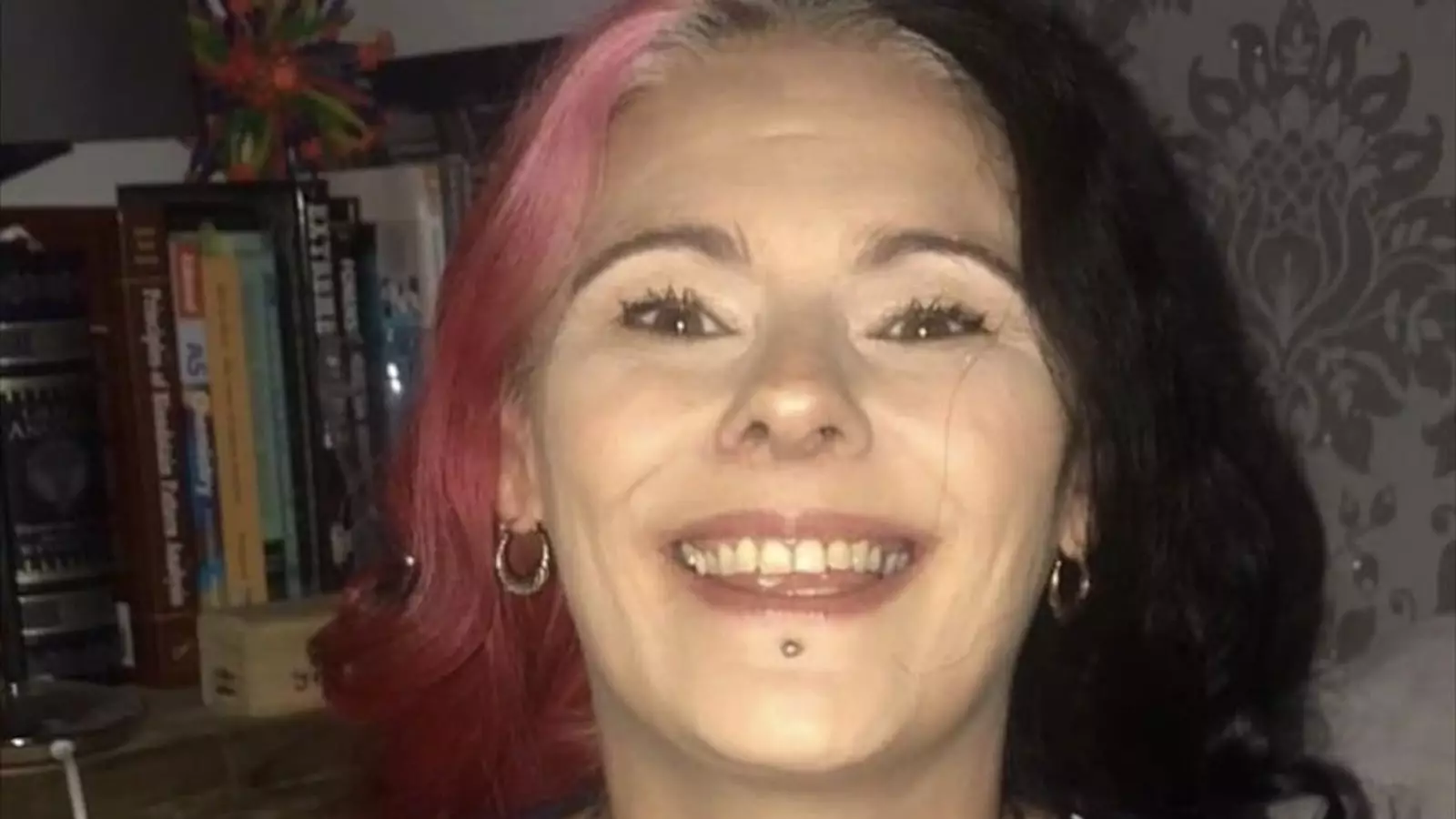The story of Paula Parretti, a vibrant and beloved aunt, is one that highlights both the joy she brought to many lives and the distressing realities of mental health care. Paula, known for her bright pink hair and warm laughter, represented the quintessential “fun aunt” in the eyes of her sister Sam Cook. She was always present for her nieces and nephews, indulging them with laughter and toys that rattled the household. However, this image of joy is contrasts sharply with the tragic events leading to Paula’s untimely death in January 2022. This duality encapsulates the profound impact that mental health struggles can impose—not just on the individuals suffering but on their families and communities as well.
A Disturbing Departure from Care
In the weeks before her death, Paula’s treatment was marked by distressing events that raise critical questions about the care and attention provided to mental health patients. Discharged from a hospital in a seemingly callous manner, Paula was left feeling abandoned and unheard. Sam’s recollection of that fateful day—where medical staff opted for expediency over patient well-being—reveals a troubling trend within mental health services. “They dropped her bags at my feet and said, ‘You’ve got to take her home, we need the bed,’” Sam recalls, embodying the frustrations shared by many families navigating mental health care. Paula’s cries for help were met with indifference, underscoring a systemic failure to prioritize patient safety and emotional needs.
As Sam prepares to speak at the Lampard Inquiry, which investigates thousands of deaths among mental health patients in Essex, the urgency for reform has never been clearer. With expectations that the deaths examined will surpass 2,000, this inquiry is pivotal in shedding light on the flaws in mental health care. The victims of these tragic circumstances were not mere statistics; they were people like Paula, each with families who loved and relied on them. The inquiry aims to unravel these heartbreaking cases to prevent future suffering, demonstrating the importance of accountability within health services.
In the aftermath of Paula’s death, Sam has taken on the mantle of advocacy, determined to ensure her sister’s voice reverberates in the halls of justice. She aims to highlight systemic injustices that many families face when dealing with mental health issues. “I promised myself after she passed away that I’d get her voice heard… now I’m finally, finally giving her her voice,” Sam states. This commitment to advocacy stems not just from her sister’s struggle, as she has also endured the loss of loved ones grappling with mental health challenges.
Many families across the country resonate with Sam’s narrative, expressing similar experiences of feeling ignored and overlooked within the health system. The solidarity of these families is a driving force for change, urging society to recognize the humanity in individuals suffering from mental health issues.
What emerges from this narrative is an essential call to action. Mental health disorders do not strip individuals of their personhood; instead, they complicate their existence and necessitate a compassionate response from the health system. Sam passionately argues for a shift in perception, emphasizing that those struggling with mental illness are loved ones and valued members of society. “Just because they have mental health problems, it doesn’t mean they’re anything less than a person,” she insists, encapsulating the need for empathy in a landscape often clouded by stigma.
As the inquiry unfolds, companions of the afflicted continue to rally for better mental health support, urging families to speak out. The stories shared in these discussions are not merely about loss; they are rooted in a desire for systemic change. The hope is that other families will not have to endure the pain of feeling unheard. Amidst the grief, advocacy emerges as a powerful tool to reclaim lost voices, challenging the often-overlooked narrative of the mental health system.
For anyone experiencing distress, resources like the Samaritans stand ready to provide support—reminding us that no one should ever feel alone in their struggles. In the memory of Paula and many like her, the fight for a better system continues, one voice at a time.

Leave a Reply